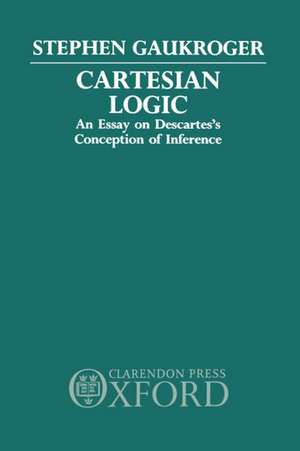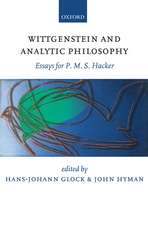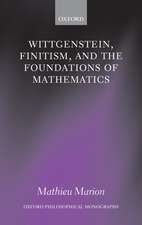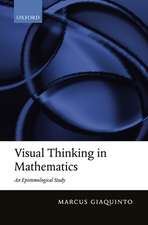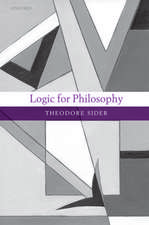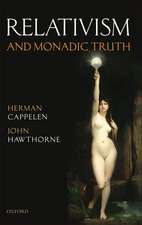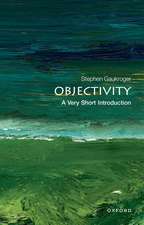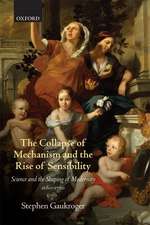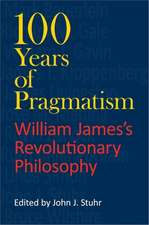Cartesian Logic: An Essay on Descartes's Conception of Inference
Autor Stephen Gaukrogeren Limba Engleză Hardback – 17 aug 1989
Preț: 843.84 lei
Preț vechi: 1284.27 lei
-34% Nou
Puncte Express: 1266
Preț estimativ în valută:
161.46€ • 169.04$ • 133.60£
161.46€ • 169.04$ • 133.60£
Carte tipărită la comandă
Livrare economică 25-31 martie
Preluare comenzi: 021 569.72.76
Specificații
ISBN-13: 9780198248255
ISBN-10: 0198248253
Pagini: 156
Dimensiuni: 144 x 225 x 18 mm
Greutate: 0.35 kg
Ediția:New.
Editura: Clarendon Press
Colecția Clarendon Press
Locul publicării:Oxford, United Kingdom
ISBN-10: 0198248253
Pagini: 156
Dimensiuni: 144 x 225 x 18 mm
Greutate: 0.35 kg
Ediția:New.
Editura: Clarendon Press
Colecția Clarendon Press
Locul publicării:Oxford, United Kingdom
Cuprins
Abbreviations; Introduction; Descartes and traditional syllogistic: The scope of logic; The syllogism as a Petitio Principii; The heuristic role of syllogism; Descartes's conception of inference: Conceptions of logic before Descartes; Conceptions of cognitive grasp before Descartes; The natural light of reason; Eternal truths: A human model for cognition; Discovery and proof: Analysis and discovery; Synthesis and proof; Appendix: The terms `a priori' and `a posteriori' in the Reply to the second set of objections to the meditations; Scientific reasoning: The method of discovery; The epistemic value of deduction; Conclusion; Bibliography; Index
Recenzii
This edition shows Essay on a New Logic to be eminently deserving of scholarly attention. In his Preface, Timothy Franz argues convincingly that the outlook of the New Logic is distinctive, with respect to both Maimon's own corpus and this period of German philosophy. For scholars of Kant's philosophy, the work holds special interest. Maimon's assertion of the dependence of general logic on transcendental logic, and his view that logical thinking presupposes an object given from "outside of thinking," pose a fascinating contrast with Kant's conceptions of general and transcendental logic. Franz's introduction and commentary highlight the importance of Maimon's account of transcendental logic, while also casting light on the subtleties of Maimon's treatment of general logic and its intended application in the sciences.
The presentation of the text is a model of precision and clarity, and in his introduction, Franz does an excellent job of setting out the structure of the Logic, and locating it within the larger context of Maimon's philosophy. This is a very impressive work of translation.
The presentation of the text is a model of precision and clarity, and in his introduction, Franz does an excellent job of setting out the structure of the Logic, and locating it within the larger context of Maimon's philosophy. This is a very impressive work of translation.
